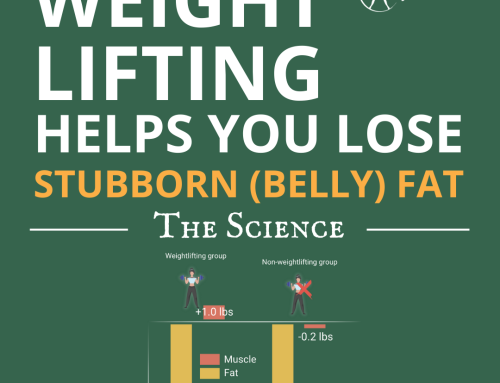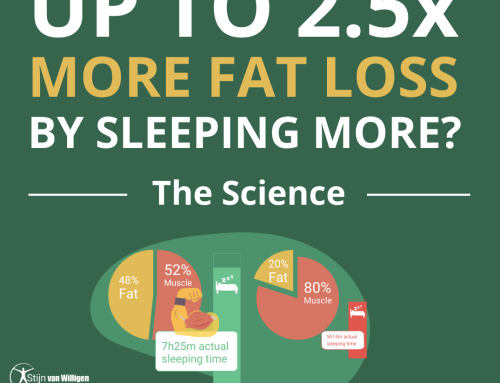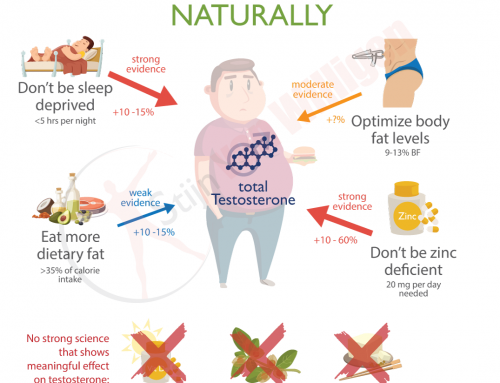Wine is a delight to drink. That’s a fact.
Whether you’re drinking a nice tempranillo during dinner, or a sauvignon blanc in the sun, you cannot deny the fact that it contributes to a cozier, richer, more tipsy life.

This begs the question: what consequence does drinking a habitual glass grapetasticness have for your figure? Should you eliminate it completely, or is there a way to incorporate it into your diet without sabotaging your weight loss?
As always, science has answers. So grab a wine, and enjoy the read!
Note: when you move your mouse over (or: tap your finger on) the sentences that are bold, you will see the scientific citation that supports it.
1. A glass of wine contains less calories than you think…
There are a lot of opinions on the calorie content of a glass of wine. Wine contains a alcohol, and the body doesn’t treat alcohol in the same way as carbohydrates, fats, or protein. It has to be broken down in the liver.
This breakdown costs energy. A gram of alcohol, by itself, contains about 7.1 calories. However, in breaking this gram down, the body uses up between 1.1 and 1.4 calories of energy. [Sut’94, Schutz’00] Because of this, 1 gram of alcohol has 5.7 to 6.0 net calories.
In other words: your liver expends energy while it’s breaking down alcohol that comes into your blood stream. You’re taking in some energy, but at the same time, you’re burning some energy.
The infographic below shows a few more examples.
2. The 1st glass contains more calories than the 5th
What is this baloney? How is that possible?
Well: when the body gets flooded with alcohol, as is the case when you’re downing your 5th glass of wine, most of the alcohol is broken down via a different metabolic pathway. [Schutz’00]
At low blood concentrations of alcohol, the metabolic pathway (Alcohol DeHydrogenase; ADH) is energy-efficient. This results in 12% of the calorie-content of alcohol being used up for its breakdown.

After about 2 to 3 glasses of wine, the ADH-pathway get saturated, after which point the less-efficient pathway of alcohol breakdown is set into action: Microsomal Ethanol-Oxidizing System (MEOS). [Lieb’97]

Going by this logic, your 1st glass contains 73 net calories, while your 5th wine contains only 61!
3. Drinking wine and eating fatty foods aren’t the best combo
The body doesn’t store energy from alcohol easily. More precisely: when the liver is done with it, less than 5% is actually stored as body fat. [Sil’99]
However, the blood alcohol has another, indirect effect. The body is busy breaking down the alcohol and subsequently using its energy as fuel. Because of this, calories from dietary fat are instantly stored as body fat! [Sil’99]
Moreover, because alcohol is the prime fuel of choice at that time, fat that’s already stored in the body isn’t used for fuel, either.
End result: during a drinking session, fat from food is indeed going straight to your hips, and existing body fat isn’t used for energy.
HOWEVER I can’t stress enough that this only results in body fat gain when more calories are consumed than burnt up over the course of the entire day! [Schutz’00] That’s because this drinking + eating fatty foods period of the day can easily be compensated for by that part of the day where you weren’t drinking or eating at all. The net result will be zero gains in body fat.
4. Wine’s detrimental effects occur post-drinking…
Psychologically, wine has another negative effect on your weight loss efforts: it’s much harder to restrain yourself.

Whether you want to jump on the bar and dance your heels off, flirt with your engaged co-worker, or devour that delicious hamburger: these intentions are a lot more likely to be put to practice when there’s some wine in your system.

Just teasing… No, really.
It’s also scientifically been shown that alcohol increases your appetite for salty, fatty foods. [Cat’04] That hamburger is a lot more likely to end up in your stomach after an excessive wine tasting session.
Further confirmation comes from research that’s shown that frequently drinking small amounts of wine is related to a lean body, while less frequent ‘binge’ sessions of wine are associated with higher body weight. [Bres’05] It’s very possible that the latter is caused by post-drinking loss of self-control in adhering to your diet.
Take-home message
- A glass of wine contains less calories than you might think, because your liver uses up energy while it’s breaking down the wine’s alcohol
- As the night progresses, every extra glass of wine contains less net calories
- Beware of fatty foods during wine drinking sessions: dietary fat is instantly stored as body fat, because the body prefers to burn incoming alcoholic calories for fuel at that time
- Watch out for the alcohol-munchies you may experience after a heavy wine drinking session: before you know it, you’re eating up to 1000 calories in one go!
Bottom line: wine is awesome. It’s a sensible constituent of a balanced diet, and it won’t affect your weight loss efforts, provided that you’re aware of its dangers outlined above.
References
Breslow, R. A., & Smothers, B. A. (2005). Drinking patterns and body mass index in never smokers national health interview survey, 1997–2001. American journal of epidemiology, 161(4), 368-376.
Caton, S. J., Ball, M., Ahern, A., & Hetherington, M. M. (2004). Dose-dependent effects of alcohol on appetite and food intake. Physiology & behavior, 81(1), 51-58.
Lieber, C. S. (1997). Cytochrome P-4502E1: its physiological and pathological role. Physiological reviews, 77(2), 517-544.
Schutz, Y. (2000). Role of substrate utilization and thermogenesis on body-weight control with particular reference to alcohol. Proceedings of the Nutrition Society, 59(04), 511-517.
Siler, S. Q., Neese, R. A., & Hellerstein, M. K. (1999). De novo lipogenesis, lipid kinetics, and whole-body lipid balances in humans after acute alcohol consumption. The American journal of clinical nutrition, 70(5), 928-936.
Suter, P. M., Jequier, E., & Schutz, Y. V. E. S. (1994). Effect of ethanol on energy expenditure. American Journal of Physiology-Regulatory, Integrative and Comparative Physiology, 266(4), R1204-R1212.





Leave A Comment